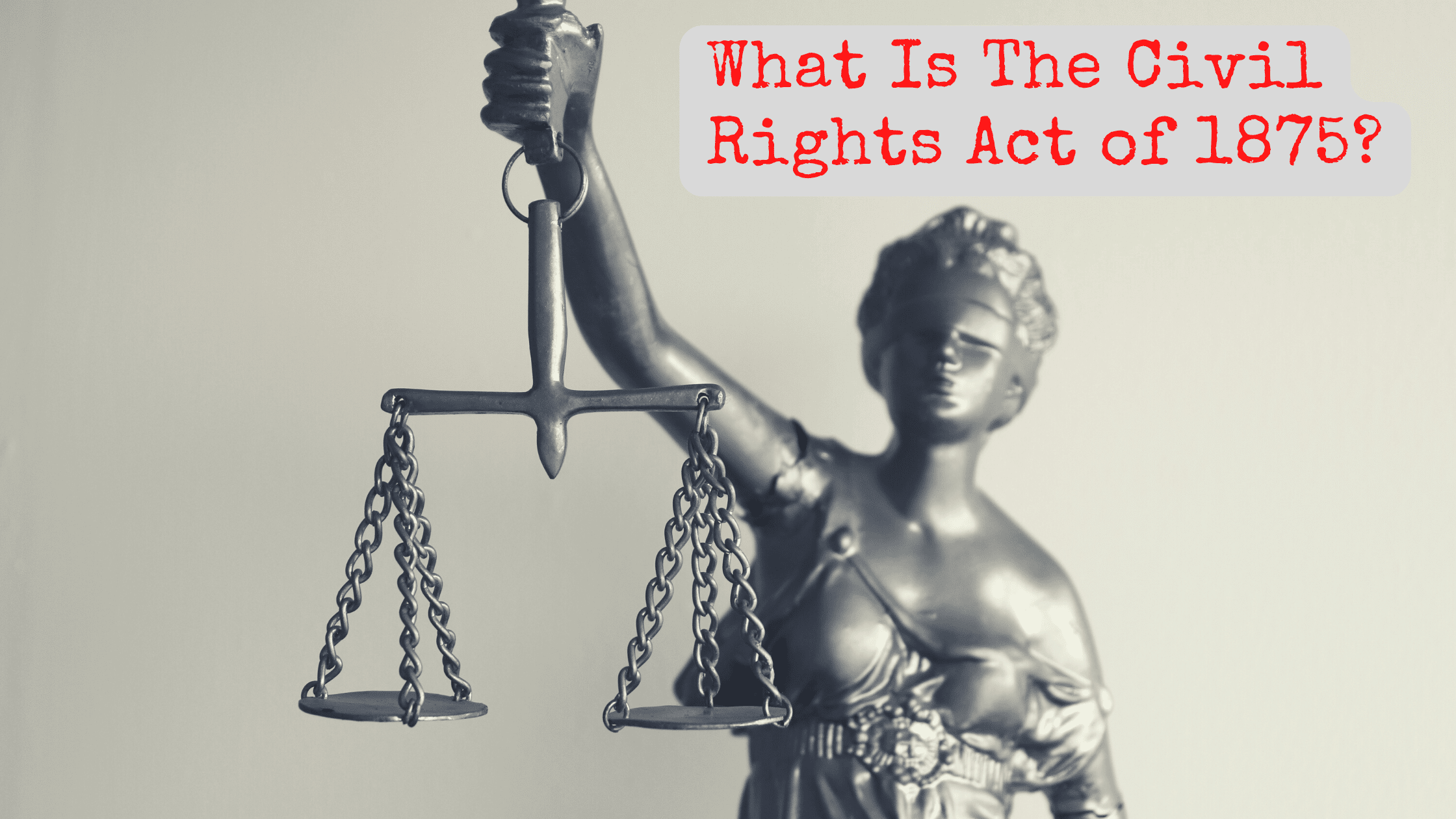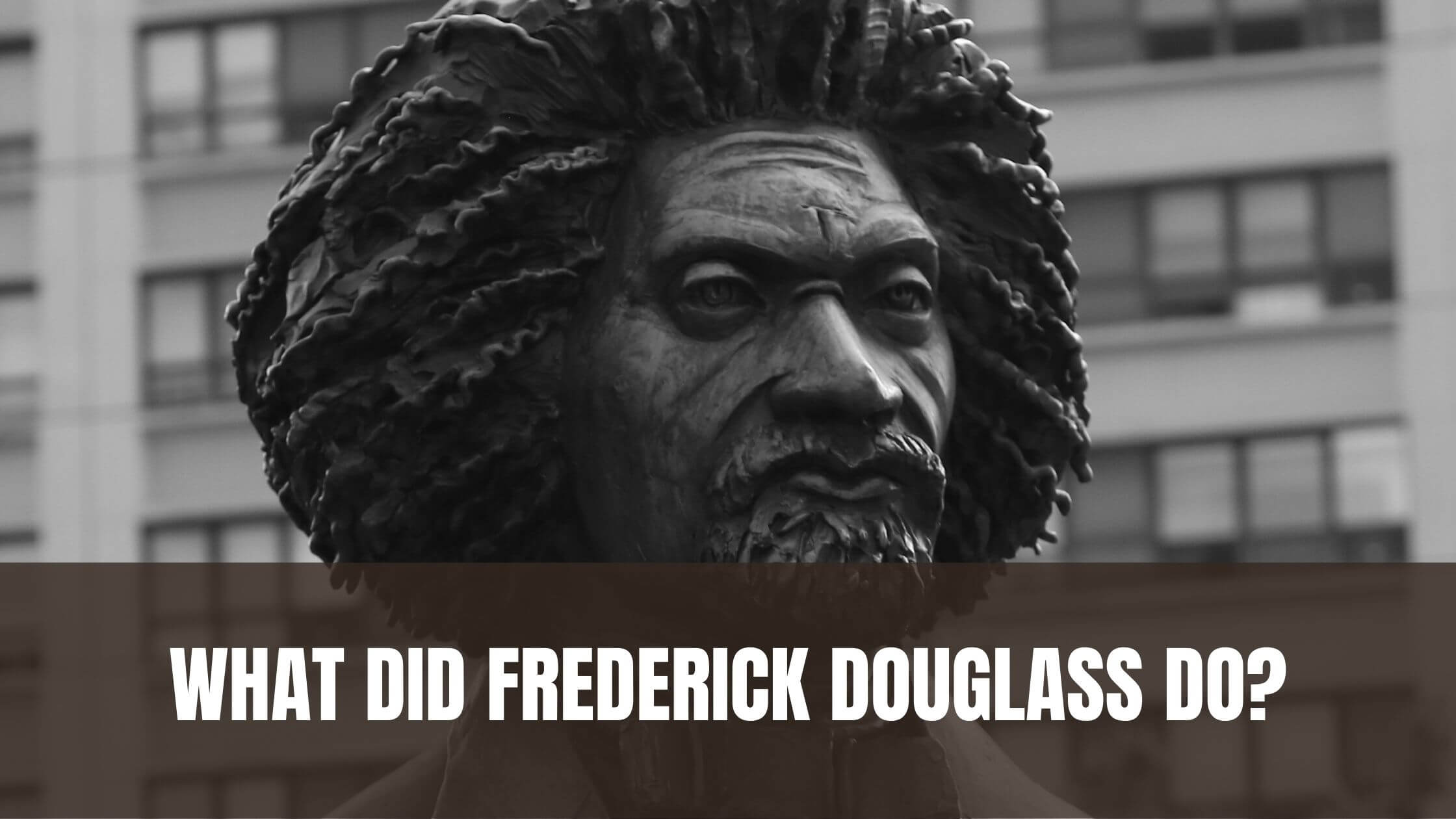Table of Contents
ToggleIn 1875, the United States Congress passed a law to give African Americans more rights. This landmark legislation was created when slavery had been abolished, but discrimination against blacks continued.
The Civil Rights Act of 1875 is officially known as “An Act to protect all Persons in the United States in their Civil Rights.” It guaranteed equality for African American men and women by prohibiting discrimination based on race or color.
Civil Rights Act of 1875
The Civil Rights Act of 1875 is a federal law that prohibits discrimination in public accommodations. Under the Act, any person who owns or controls an inn, restaurant, theater, or another place of public housing cannot refuse to serve anyone because of their race.
This Act was passed in response to the Supreme Court’s decision in Plessy v Ferguson which upheld segregation laws and stated that “separate but equal” facilities were constitutional.
The Civil Rights Act of 1964 superseded this Act and made it illegal for anyone to discriminate against others based on their race.
It also required employers to provide equal pay regardless of sex (Title VII), color (Title I), religion (Title II), or national origin (Title III). Title IX prohibited gender-based discrimination at educational institutions receiving federal funds. Title IV provided voting rights protections, and Title VI outlawed racial discrimination by any programs receiving federal assistance.
The Act is a United States federal law passed to protect African American citizens’ rights and civil liberties. The Act prohibited discrimination in public places, including streetcars, theaters, hotels, and restaurants. This legislation helped establish legal precedent towards ending segregation and protecting black Americans from unfair treatment by state governments.
Who Passed the Act?
The Civil Rights Act of 1875 was passed by Congress and signed into law by President Ulysses S. Grant on March 01, 1875. The Act stated that all persons should be entitled to the full and equal enjoyment of public accommodations without discrimination or segregation based on race. Furthermore, it also prohibited anyone from denying access to anyone inside a public facility under the pretext of race.
Why Was It Enacted?
As a result of the Reconstruction Amendments, Congress needed to protect the rights given to African Americans. The Civil Rights Act was done with that purpose in mind.
It stated that all people were treated equally under the law regardless of race or color. This Act is known as one of four civil rights acts passed by Congress during Reconstruction, and it prevented racial discrimination in public places and facilities.
What Does The Act Entail?
The Civil Rights Act provided that
“all persons within the jurisdiction of the United States shall have the same right in every state and territory to make and enforce contracts, to sue, be parties, give evidence, and to the full and equal benefit of all laws and proceedings for the security of persons and property as is enjoyed by white citizens, and shall be subject to like punishment, pains, penalties, taxes, licenses and exactions of every kind.”
This Act was very significant in that it helped protect the rights given to African Americans. It stated that all people were treated equally under the law regardless of race or color without fear of discrimination in public places and facilities.
The Civil Rights Act of 1875 was the first primary federal legislation that prohibited racial discrimination under its authority and ensured African Americans equal access to railroads, streetcars, theaters, restaurants, and other public accommodations. It also guaranteed them fair treatment on all modes of transportation; however, it did not protect African Americans from violence or other forms of intimidation.
How did The Federal Government enforce the Act?
The Civil Rights Act of 1875 is also known as the Enforcement Act. Congress passed it to give teeth to the 15th Amendment, which prohibits states from denying a citizen the right to vote based on that citizen’s “race, color or previous condition of servitude.”
The Act created penalties for obstructing access to public places and preventing citizens from voting. The Act also established federal supervision for elections in states where rights were denied to people, such as African Americans or women, who had been authorized by law to vote.
The Act also made it a crime for two or more people (by violence) unlawfully (with force) to injure, intimidate, interfere with, oppress or threaten any citizen in the exercise of his right to obtain employment.
The federal government enforced it through its attorneys and Department of Justice staff who worked with U.S. Attorneys for litigation under this law in selected localities around the country during an early period when Congress had not authorized a large-scale program for enforcing federal civil rights. Enforcement was repealed in 1976.
What Happened After It Was Passed?
The civil rights act of 1875 ended up passing with little opposition. This surprised many people because there was so much resistance towards giving African Americans equal rights, such as the suffrage movement.
The civil rights act gave way for black men to serve on juries and have equal access to public accommodations. However, the Act was not enforced by Presidents Grover Cleveland or William McKinley during their tenures in office from 1885-1901.
It wasn’t until 1917 when President Woodrow Wilson began a program of civil rights enforcement that led to the implementation of most provisions of this law.
After the civil rights act of 1875 was passed, there wasn’t much change because many states opposed it. In addition, the public was not happy with it because they didn’t think African Americans deserved equal rights and believed that white people were better than black people, but they couldn’t do anything about it since this Act had been passed.

Get Smarter on US News, History, and the Constitution
Join the thousands of fellow patriots who rely on our 5-minute newsletter to stay informed on the key events and trends that shaped our nation's past and continue to shape its present.
Was The Act Quickly Enforced?
Although there was little change, it still brought about many changes and gave black men the ability to serve on juries and have equal access. Even if they didn’t enforce it until 1917, Woodrow Wilson did make some good progress towards implementing these laws during his time in office by starting a program that began some changes.
The civil rights act of 1875 was passed when some significant movements were going on in America that included the women’s suffrage movement and prohibition, which is why it had little opposition when they finally did pass this law.
Did It Stop Discrimination?
The Act stopped making discrimination legal in public places and outlawed discriminatory practices by companies that provided services to the general public, including railroads and streetcars.
This legislation was significant because it made segregation in all forms illegal, which would help end segregation laws across America. The Civil Rights Act of 1875 was seen as an important victory for African Americans. The Act helped establish legal precedent towards ending segregation and protecting black Americans from unfair treatment by state governments.
It would later lead to the passing of the more powerful 1964 Civil Rights Act, which outlawed any discrimination in public places and made it illegal to discriminate based on race, color, or national origin.
The United States Congress passed this historic law designed to give African Americans more rights. The Civil Rights Act of 1875 is officially known as “An Act to protect all Persons in the United States in their Civil Rights.” It guaranteed equality for people regardless of race and color by prohibiting discrimination based on race or color anywhere in public places.
The Challenges Activists Faced
The challenges faced by civil rights activists in the late 1800s and early 1900s were similar to those faced by today’s civil rights activists.
The challenges they faced were many. One of the most significant challenges was gaining support from white people who were fearful that African Americans might try and use their new rights aggressively to intimidate or dominate whites.
Another challenge civil rights activists faced was overcoming deeply entrenched racial prejudice. Racial prejudice often led groups such as white immigrants, working-class workers, women’s suffrage activists, and temperance reformers to oppose the civil rights movement.
While these challenges seem impossible, it is also essential to recognize that many people did support the aims of the civil rights movement because they thought black people should be given an equal chance in society as white people. The key point was how difficult it was to change the deeply rooted racial prejudices in the community.
What Are The Effects Of This Act In the Modern Times?
It is tough to know what would have happened without it. Some positive changes occurred, but a backlash against African Americans did not reverse until Brown v Board in 1954. However, the main difference seems to be how people think about civil rights and discrimination because public opinion polls show that the public thinks it is illegal to discriminate. This probably would not have happened without the Civil Rights Act of 1875.
Is The Act Significant Until Today?
Yes, because many states opposed it after it was given. This brought about some societal changes, even if they didn’t enforce it until 1917. For instance, before this Act, black men could not serve on juries in most states.
Most of the civil rights act has been repealed today because it is no longer needed. The only thing that still exists from this Act is section 2000e-16, which makes illegal employment decisions based upon race or color. This is probably one reason why public opinion polls show that the public thinks discriminating is unlawful.
The impact of the civil rights act was signed on society because many people still think that discrimination based upon race or color in employment decisions is wrong and should not happen. Therefore, it probably would not have happened without this Act, even if there were some challenges along the way, such as getting support from white people who were fearful of people trying to intimidate them.











